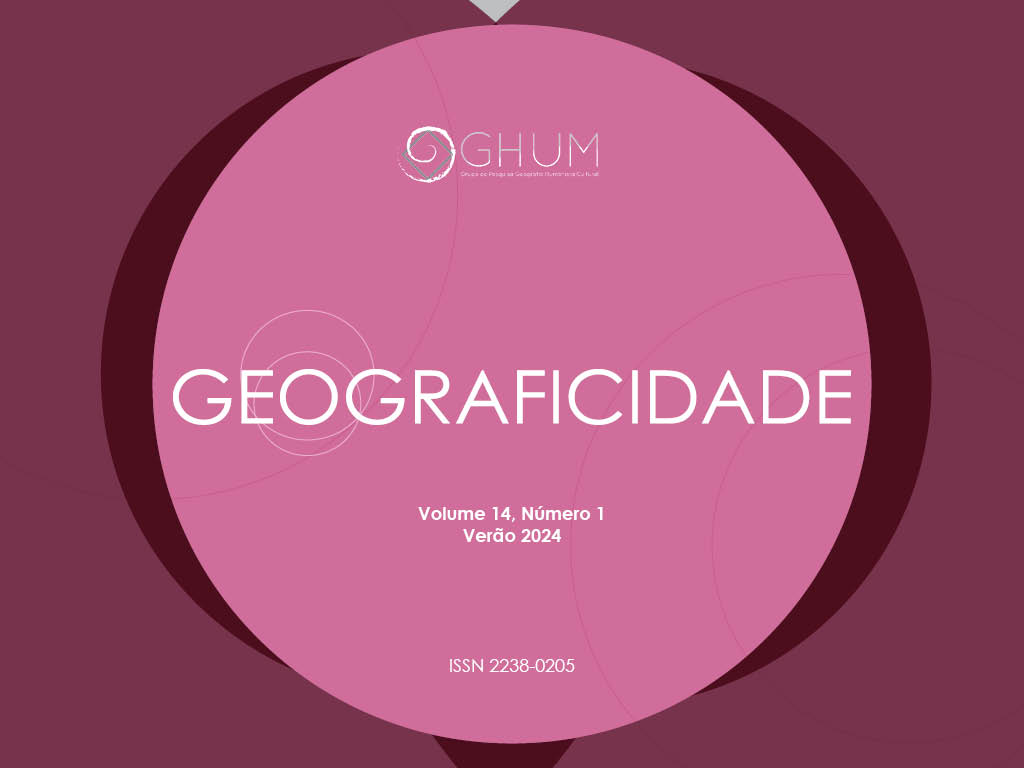Performance territorial dos contratantes de microcrédito na periferia de Sobral-CE
Palavras-chave:
Performance territorial, Microcrédito, PeriferiaResumo
Este trabalho trata sobre a performance territorial dos contratantes do microcrédito institucional na periferia de Sobral-CE, compreendendo os agenciamentos gerados a partir do microcrédito e suas implicações culturais entre os moradores e moradoras / contratantes nos bairros periféricos acionadas pela adesão ao aval solidário (articulação mútua para aprovação do microcrédito) e na formação dos negócios/atividades de serviços e comércios. A
discussão se prende a refletir sobre a performance individual
sustentada em um substrato de crenças, pensamentos e afetos que ocorrem nesse tipo de implantação de uma cultura empreendedora no bairro pobre da cidade, e que podem transformar determinados modelos de solidariedades entre os contratantes e os moradores, como também causar o rompimento de vínculos entre os tomadores de microcrédito, sobretudo quando os compromissos entre os membros do grupo do aval solidário não são efetivados com os
bancos. Essas situações alteram a convivência, a performance
territorial dos contratantes e as práticas empreendedoras intra e interbairros.
Downloads
Referências
APPADURAI, A. Dimensões culturais da globalização. Teorema: Lisboa, 2004.
ESPINOSA, B. Ética. Trad. Tomaz Tadeu. Belo Horizonte: Autêntica, 2009.
FONSECA, C. Família, fofoca e honra: etnografia de relações de gênero e violência em grupos populares. 2 ed. Porto Alegre: Editora da UFRGS, 2004.
GONZALEZ, L.; RIGHETTIB, C.; DI SERIOC, L. C. Microcrédito e impacto sobre a geração de renda: o caso do banco real. Rev. Economia Contemporânea, Rio de Janeiro, v. 18, n. 3, p. 453-476, 2014.
HAESBAERT, R.; BRUCE, G. A desterritorialização na obra de Deleuze e Guattari. Geographia, Niterói-RJ, v. 4, n. 7, p. 7-22, 2002.
KRENAK, A. Ideias para adiar o fim do mundo. São Paulo: Companhia das Letras, 2019.
MAYOL, P. “A conveniência”. In: CERTEAU, M. de. A Invenção do Cotidiano: 2 – Morar, cozinhar. Petrópolis: Vozes, 1994. p. 46-69.
MAUSS, M. Introdução – Da dádiva e, em particular, da obrigação em retribuir os presentes. In: MAUSS, M. Sociologia e Antropologia. São Paulo: Cosac Naify, 2003. p.185-193.
Mbembe, A. Necropolítica. Arte & Ensaios, Rio de Janeiro, n. 32, p. 122-151, 2016.
PADOVANI, N. C. É Possível Fazer Ciências Sociais sem uma Análise Crítica das Categorias de Diferenciação? Uma Proposição Feminista. Caderno de Estudos Sociais e Políticos, Rio de Janeiro, v. 07, n. 12, p. 6-30, 2017.
PAIVA, D. Teorias não-representacionais na Geografia II: métodos para uma geografia do que acontece. Finisterra, Lisboa, v. 53, n. 107, p. 159 -168, 2018.
PRADO, R. M. Cidade Pequena: paraíso e inferno da pessoalidade. Cadernos de Antropologia e Imagem, Rio de Janeiro, n. 4, p. 31-56, 1998.
SOUSA, Vicente de Paulo. Agentes da periferia de Sobral-CE promovem empreendedorismo social. Agência de Notícias das Favelas. 10 ago, 2019. Disponível em: https://www.anf.org.br/agentes-da-periferia-e-o-empreededorismo-local/. Acesso em: jan. 2024.
WAGNER, R. A invenção da cultura. São Paulo: Cosac Naify, 2010.


